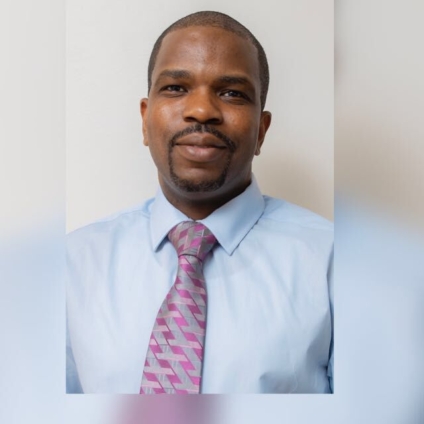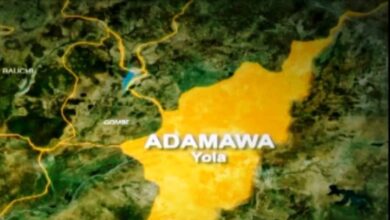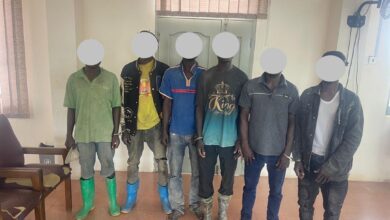Galamsey Is A Social Crisis: Only chiefs, not drones or bullets, can heal Ghana’s wounded and


When I hear calls for helicopters, drones, and armed crackdowns to stop galamsey, I feel that our nation is misreading the illness. We keep treating a wound with instruments instead of treating the person who is bleeding. We have turned scientists and engineers into judges, and in doing so, we have made the victims into the accused.
The destruction is real. Rivers are brown and lifeless. Forests that once held our ancestors lie bare. Farms cannot yield, and children drink water that carries poison. The environmental harm is urgent and must be addressed. But the way we define the problem matters. If we call galamsey a technical problem, we will seek technical solutions. If we acknowledge it as a social problem, we must develop social solutions. Ghana consistently chooses the first option, and that is why every government policy has failed.
In recent days, a mining engineer has spoken of political crackdowns, while a climate scientist called for helicopters and guns to end illegal mining. These statements are not isolated. They reflect a more profound national confusion. Technical experts have become the loudest voices on a problem that is more social, cultural, and moral than it is technical. We have made scientists the new high priests of our national crises, even in matters they do not fully understand.
Scientists and engineers are trained to observe, measure, and quantify. Their models can capture levels of mercury or turbidity, but they cannot capture the sorrow of families whose livelihoods depend on the polluted rivers. They can test for acidity, but not for the pain of losing sacred groves or ancestral lands. A mining engineer may speak of ore recovery, metallurgy, and mine safety. A climate scientist may model rainfall and pollution. A physicist may promote nano liquid technology to clean rivers. But none of them are trained to feel the cultural, spiritual, and moral meanings that people attach to land and water. To them, land is a resource. To the people, land is identity, heritage, and a sense of belonging.
It is this misdiagnosis that leads us to believe that political will, in the form of government machinery, can end galamsey. Many experts focus on victimising the victims. They remove social, spiritual, and allodial land rights from the debate. I do not blame them. That is not their expertise. But to think that climate scientists, mining engineers, and the emotional outbursts of laypeople in government or on the streets can solve galamsey is a complete aberration. Let us understand that this is a social problem, not a scientific one.
There is a reason people hold such strong sentiments about allodial rights to land. People will die for land, and if they die and there is something called reincarnation, they will come back and fight again. You cannot build garrisons on every riverfront and imagine that you have fixed the problem. You cannot fly drones for a year or keep helicopters in the sky for six months and think you have restored the land. The existential threat that galamsey poses to the nation is real, but it is not the immediate concern of those whose survival depends on it. People have urgent needs. What is death by the liver to a person who at least earns a living today and can eat before dying tomorrow?
While conducting my doctoral research in Dunkwa Offin, I encountered this reality vividly and painfully. Married women I spoke with were aware of the environmental effects of galamsey, but they felt that the harm was distant from their daily struggles. They told me they were alienated from the national cake. A day’s work at a mining site offered them 150 Ghana cedis, enough to feed their children and keep their dignity. Others made a living cooking for miners or selling water and food around the pits. A whole local economy had grown around illegal mining. You cannot extinguish people’s livelihoods and expect them to simply walk away because a government task force says so. To them, galamsey is not a crime; it is a lifeline.
Because politicians and successive governments have failed to address the people’s needs, they cannot solve this problem. The only institution that can be retooled to address galamsey is the chieftaincy institution. Regardless of its flaws, chieftaincy remains the closest link between leadership and the people, as well as between leadership and the miners themselves. Chiefs live among their subjects. Their lives are deeply intertwined with those of their communities. The ordinary Ghanaian in mining towns sees the government as distant, unresponsive, and often corrupt. Chiefs, however, remain accessible and visible, even when their powers have been weakened by the state.
In the modern political order, chiefs have lost much of their authority. They cannot summon offenders or enforce sanctions. I recall President John Mahama once raising the idea of extending limited powers to gazetted chiefs, but that vision was never pursued. It is time to return to that idea with humility and seriousness. Chiefs must be capacitated to mediate, enforce, and resolve mining-related conflicts. They are not perfect, but they are trusted. They speak the moral language that their people understand. They can appeal to conscience, not coercion.
In some centralised mining areas, paramountcies still wield traditional authority that commands respect. However, in acephalous communities where no paramount chief exists, moral control has weakened. Restoring the sanctity of traditional authority must therefore be the first step toward lasting reform. Chiefs should be granted both legal and economic authority to lead environmental governance within their communities. Empowering them is not a step backwards; it is a step toward authentic local governance rooted in our cultural reality.
A good starting point would be to give chieftaincy a formal place in national decision-making. The Council of State, which has become a ceremonial relic, should be transformed into a second chamber of Parliament composed of gazetted and elected chiefs. This chamber would ensure that laws and policies reflect the lived realities of the people, rather than merely importing bureaucratic models. Chiefs would bring an Afrocentric perspective to lawmaking, helping to restore moral authority and balance to national governance.
The long-promised monthly subventions to chiefs must also be implemented. Traditional leaders cannot act independently when they are financially crippled. Economic empowerment will enable them to become independent thinkers and capable institutions that can command genuine respect from their people. When chiefs are empowered and communities see their efforts bear fruit, the social contract between leadership and the people will be restored.
Read Also: Galamsey, Chiefs, and the Fatal Illusion of State Control: Why Ghana must return power to the people
It is time to admit that central government interventions, no matter how militarised or technologically advanced, cannot end galamsey. The solution lies in returning power to the grassroots, to those who live with the rivers, forests, and pits. Chiefs are not just symbols of tradition; they are custodians of conscience. By reimagining its role within the state and grounding environmental policy in culture, Ghana can heal both its land and its people.
Galamsey is not merely a war to be fought. It is also a wound that must be healed. Healing requires justice, empathy, and local wisdom, not bullets and drones. The land is crying, but so are the people. Only when we listen to both can we find peace between them.
About the Author
Dr Manaseh Mawufemor Mintah is an Afrocentric environmental scholar and legal professional whose research and advocacy focus on mining governance, sustainability, and traditional authority in Africa.
He holds a PhD in Environmental Studies from Antioch University New England, a Juris Doctor with specialization in Environmental Law from the Massachusetts School of Law, a Master’s in Sustainable International Development from Brandeis University, a Bachelor of Arts in African Studies from the University of Cape Coast, and is currently pursuing an LLM in International Minerals and Energy Policy at the University of Dundee.
DISCLAIMER: The Views, Comments, Opinions, Contributions and Statements made by Readers and Contributors on this platform do not necessarily represent the views or policy of Multimedia Group Limited.
DISCLAIMER: The Views, Comments, Opinions, Contributions and Statements made by Readers and Contributors on this platform do not necessarily represent the views or policy of Multimedia Group Limited.
Source link





